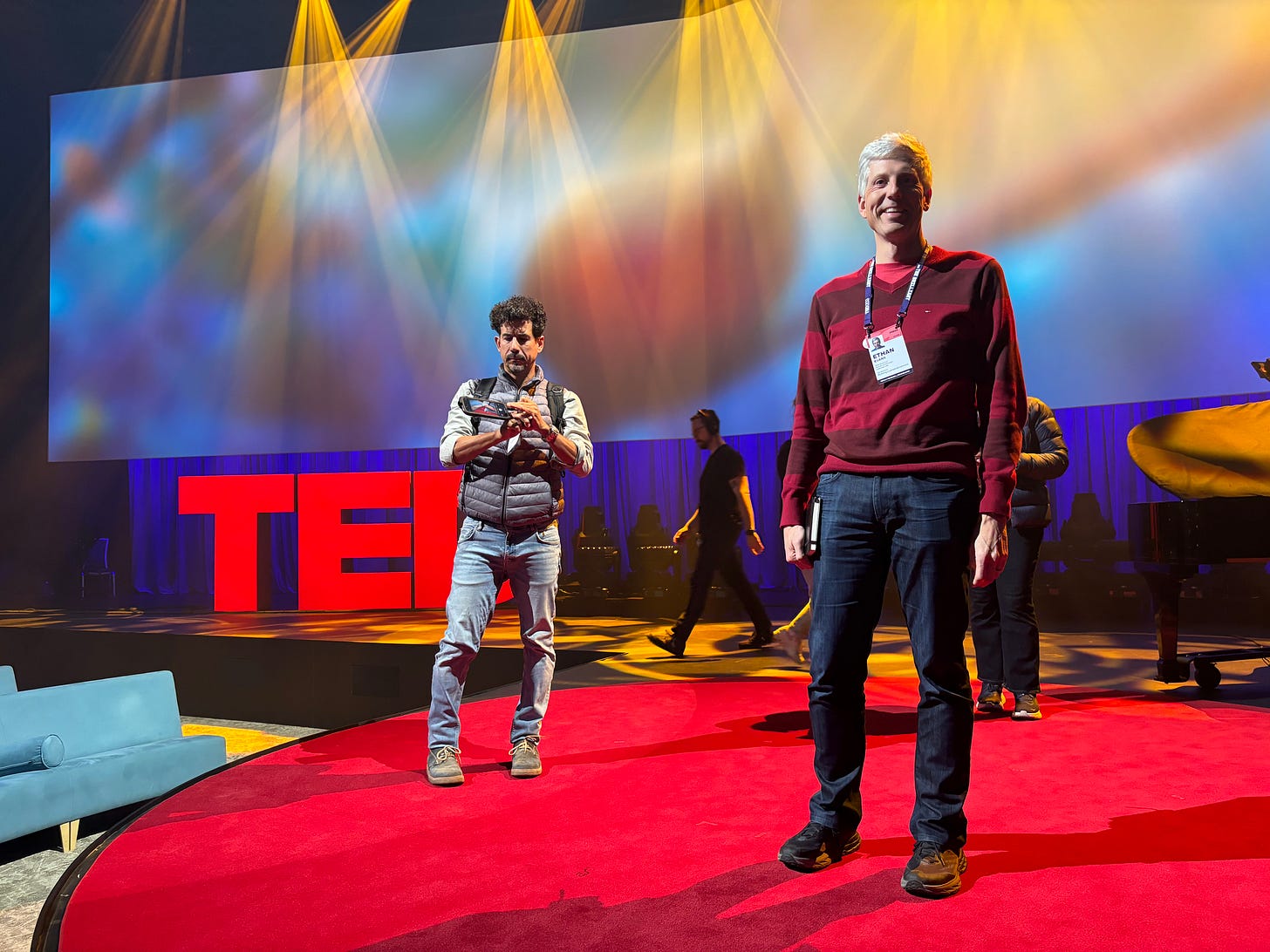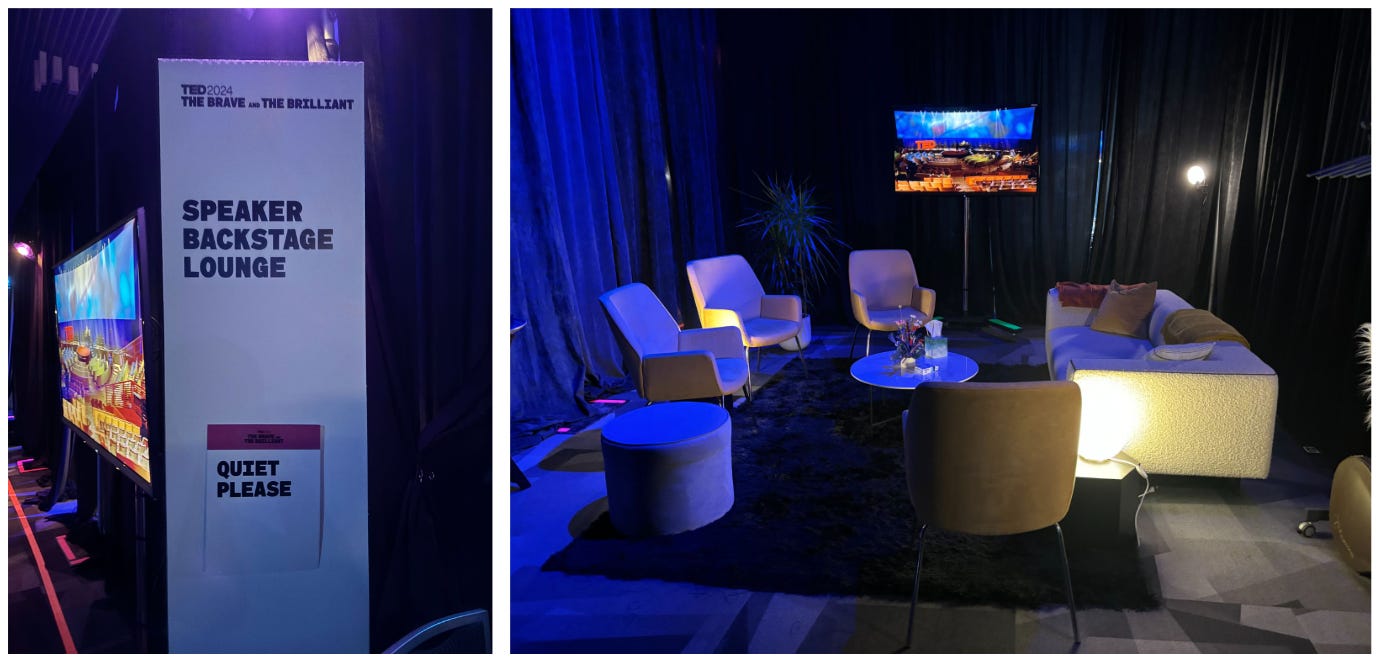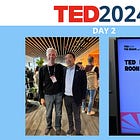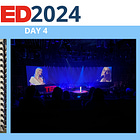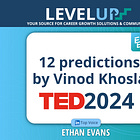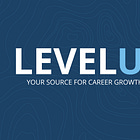Saying the hard thing
TED 2024 Day 3 Lesson: The courage to speak up
Welcome to Level Up: Your source for career growth solutions & community by retired Amazon Vice President, Ethan Evans.
Finding the courage to speak up at work drove my career to Vice President at Amazon.
Examples of my pivotal moments:
As a Senior Manager at Amazon I got a key project green lit by saying: "Unless you order me not to build this, I'm doing it." I was promoted as a result of the project.
As a Vice President, when I was asked by Jeff Bezos, at the Amazon board meeting, if we were on track to be the biggest game company in the world, I simply said, "no." After letting the no register, I explained why.
Answering specifically, strongly, and directly advanced my career in each case.
However, I was lucky.
In both cases, I responded to unexpected questions or challenges and spoke before the fear of the consequences could kick in.
On day three at the TED Conference, I watched several speakers address difficult, controversial topics.
Here are two key lessons:
(1) Addressing difficult or unwelcome topics is scary and hard in the moment, but usually has long-term rewards.
Many of the speakers I watched at TED today tackled incredibly controversial topics.
They have faced real blowback from those who disagree with them. But this did not stop them and they built careers on their bold (if unpopular) stands.
Almost everyone famous or successful we know has made unpopular choices.
Steve Jobs was famously blunt in his quest for product perfection.
Martin Luther King Jr. (and for that matter, his namesake Martin Luther) changed his society by standing up repeatedly, against life-threatening opposition, for what he believed.
The point here is not that you must risk your life, but that you must overcome your fear to advocate for what you believe.
At TED, they brought in a series of high-profile speakers who had the potential to be controversial. The morning speaker session was accurately labeled "Provocateurs":
Bill Ackman has recently been in the news for his public criticism of Harvard's DEI policy.
Former presidential candidate Andrew Yang.
Free Press founder Bari Weiss.
NYU professor (and Amazon critic) Scott Galloway.
Carole Hooven (a former Harvard professor) recently became famous (or infamous) for her views on the biological underpinnings of nature, her story in her words. A few things:
I believe in the importance of speaking up.
You absolutely can pay a huge price for speaking up.
And yet, obviously, Carole was invited to TED as a consequence. On stage, she talked about trying to rebuild her life (a big cost), but I believe she will rebound stronger and more powerful.
As I typed this, I was in the TED Press room with two journalists who I believe identify as trans, they began to discuss Carole’s talk as unpleasant to them. I spoke to both journalists and then to Carole. They were all good conversations where I learned a lot. Essentially, the challenge is that Carole's perspective on biological facts is then easily extended to political agendas. I am not a biologist, but the basic case is this: if you accept for a minute that at the cellular or organism level there are "male" and "female," then it is easy for some people to extend from this that there are "male" and "female" traits, roles, and properties. Some would go further to then say that "male" and "female" roles are the "natural order of things." Carole told me this is not her perspective; I have not independently verified what else she may have said or written. The point is, the ability to extrapolate what she says is what creates the potential for controversy.
(2) How to set up and manage a volatile session.
Head of TED, Chris Anderson, set up the context by asking the audience to be open to: "Disagreeing with someone and still learning from them."
I thought this was a brilliant challenge, and it worked.
800+ people and I in a live audience auditorium was quiet and respectful for two hours. Amazing!
It is far easier to manage a volatile or hard conversation if you can prepare for it.
In summary: Saying the hard thing will advance your career, and if you plan carefully in advance, you can usually say it safely.
It is our fear that holds us back.
Readers: How have you found the courage to say controversial or unpopular things when necessary?
Additional TED day three insights, tidbits, and photos.
I had a deep interview with Briar Goldberg, TED’s Director of Speaker Coaching about how she and her team prepare speakers to give a TED talk. She prepares hundreds of speakers to present in front of a live audience under time pressure and without a teleprompter or confidence monitor. I will share top tips, insights, and tactics in a future newsletter post…I have three pages of notes.
I interviewed Alison Taylor, the NYU professor tasked with interviewing Bill Ackman on the TED Stage, about her preparation for that possibly volatile task.
I spoke with Scott Galloway, also an NYU professor and frequent critic of Amazon and the rest of big tech, on how leaders internal to big tech can influence the companies for the better.
Scott Galloway shared his preparation for his own controversial TED Talk. I'll share his speaker preparation in a future post.
Teaser: Scott gets panic attacks on stage 1.2% of the time, enough that he worries he will panic *this* time every time he gets on stage.
2020 Presidential candidate Andrew Yang proposed how to actually fix American politics!
Reporter Bari Weiss gave an incredible lesson on how to own the stage. When her talk is released we will go through it and analyze a great example of executive presence.
The TED mainstage theater is 8000 pieces, weighs 300 metric tonnes, and takes 196 continual hours. Read here for more and watch this fun timelapse video.
Additional TED posts
If you are interested in leadership development, consider my courses:
Connect With Ethan
Level Up is your source for career growth solutions & community by retired Amazon Vice President, Ethan Evans.
Free members get 2 full newsletter articles a month on career growth solutions.
Paid members get 8 articles + exclusive access to ongoing live podcasts/events (e.g. career talks, watching live executive coaching with a real client, fireside chats w/leaders, career Q&A) + all video recordings (14+ hours of content to date) + a private Slack community for leadership networking.
Learn more and hear what members have to say:




